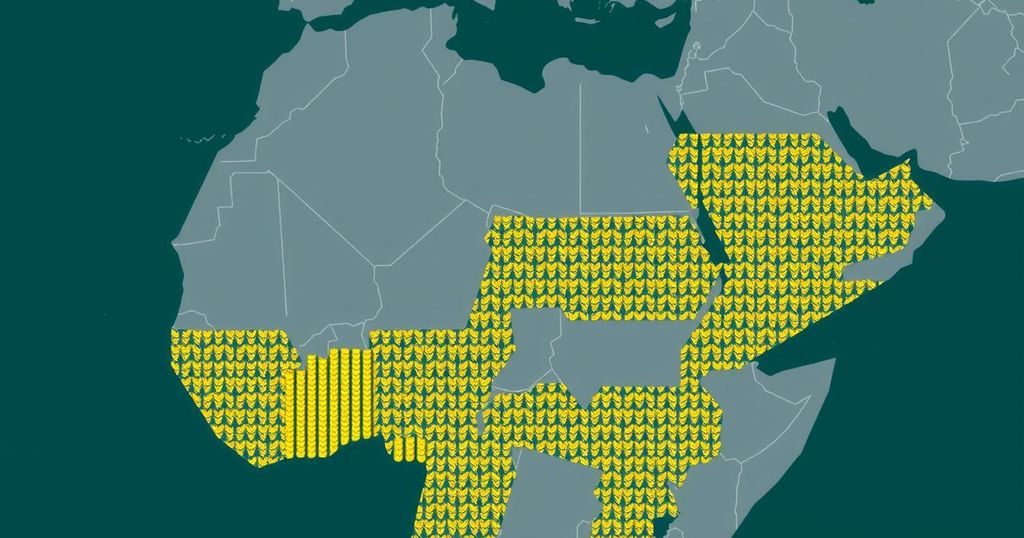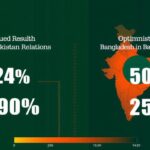Niger Implements Export Ban on Food Items to Protect Local Market
Niger has announced an export ban on rice, cereals, and other food items to safeguard local supplies amid inflation, with exceptions for military-led Burkina Faso and Mali. The measures aim to protect the internal market and manage local food accessibility. Niger is a key regional supplier, and the government plans to purchase farmers’ harvests to reinforce emergency reserves amid significant flooding.
Niger’s military leaders have enacted a ban on the export of rice, cereal, and various food items to all nations, with the exception of the junta-led countries of Burkina Faso and Mali. This decision aims to safeguard the local supply and address the ongoing inflation afflicting the Sahel nation, particularly concerning staple foods. The prohibition encompasses not only rice but also legumes, such as cowpea, and cereals like millet, sorghum, and corn. Junta chief Abdourahamane Tiani asserted that this measure is essential to “protect the supply of the internal market” and to “make the goods of mass consumption accessible,” as stated by the government. While exports to neighboring Mali and Burkina Faso are exempt from these restrictions, penalties for breaching the export ban could involve the seizure of shipments and legal repercussions. As a significant regional provider of cereals, Niger holds considerable influence over food supplies for states in neighboring Nigeria. Though the Economic Community of West African States (ECOWAS) lifted sanctions on Niger in February following the July 2023 coup, these sanctions have nonetheless created turmoil in local markets, contributing to the persistent inflation of products, notably rice. Additionally, the closure of the border with Benin has exacerbated supply issues. To mitigate the situation, Niger’s agriculture minister has pledged to procure portions of farmers’ harvests to bolster national emergency reserves, with hopes for favorable agricultural yields despite the severe flooding that has plagued the region. This rainy season has resulted in significant flooding incidents, affecting one and a half million citizens and leading to 339 fatalities, according to data from the civil protection agency. Moreover, in response to the flooding, authorities in Niamey have announced a considerable 35 percent reduction in cement prices to assist the flood victims in rebuilding their homes. Climate experts have warned that the growing impact of climate change — largely stemming from fossil fuel emissions — has rendered extreme weather events, such as these floods, increasingly frequent and severe.
The recent export ban implemented by Niger’s military government ratifies the country’s strategic reliance on its agricultural outputs amidst ongoing economic challenges exacerbated by inflation and disruptions in supply chains. The nation has traditionally played a pivotal role in providing essential food supplies to neighboring countries in the Sahel region, including Nigeria. The political landscape following the coup in July 2023 and subsequent sanctions by ECOWAS has further complicated the food security scenario, underscoring the need for measures that protect internal supply while navigating regional alliances. Such policies reflect broader regional dynamics shaped by military governance in neighboring Burkina Faso and Mali, highlighting the interconnectedness of food security and political stability in the region.
In summary, Niger’s recent decision to restrict food exports to all nations except Burkina Faso and Mali seeks to enhance local food security amid ongoing inflationary pressures. This strategic measure underscores the interplay between political governance and agricultural viability in the Sahel. Furthermore, the government’s commitment to purchasing crops from farmers to augment emergency reserves is a proactive approach towards mitigating the impact of a challenging agricultural season marked by extreme weather events. As climate change continues to influence such occurrences, the need for effective policy interventions becomes increasingly critical.
Original Source: punchng.com








Post Comment